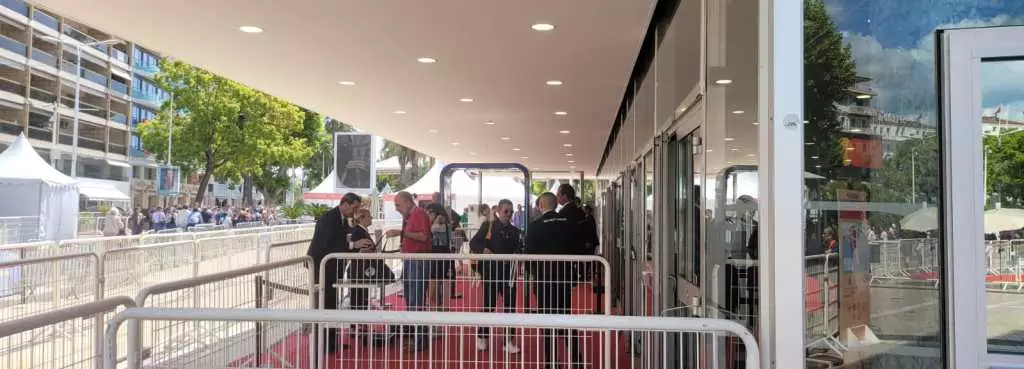The recent power outage in Cannes, which cast a shadow over the vibrant festivities of the Cannes Film Festival, was not merely a disruption but a litmus test for the resilience of one of the film industry’s most prestigious events. At approximately 10 AM local time, a widespread blackout struck, affecting thousands of households across the Alpes-Maritimes region, leaving shops and restaurants in darkness and crippling electronic transactions. As a result, only cash payments were possible, creating a ripple effect of chaos and inconvenience in a city bustling with filmmakers, journalists, and cinephiles.
Adding a layer of intrigue to the situation, allegations of sabotage emerged following a fire at a local electricity station and the suspicious downing of power pylons in close proximity to prominent towns. Reports suggest that investigation efforts are underway, hinting at potential foul play. In an era where the stakes are high and espionage looms large over international events, one can’t help but speculate about what might lie beneath the surface of a mere power failure.
The Commitment to Continue
Despite these challenges, the Cannes Film Festival demonstrated an unwavering commitment to its schedule. Statements from festival organizers assured participants that they were equipped with an independent power supply, enabling events—including the highly anticipated Closing Ceremony—to continue as planned. This determination highlights not just the logistical mastery involved in orchestrating a festival of such magnitude, but also the emotional fortitude of those involved.
Events like this often act as a mirror to society; they reflect how we deal with crises, adapt, and strive to persevere. The Festival’s insistence on carrying on in the face of adversity sends a strong message: we will not be deterred by darkness, and creativity will find a way to shine. This resilient spirit assures that even amid turbulence, artistic expression refuses to dim.
Challenges Faced Across the City
While the Palais des Festivals managed to stay operational, the chaos was palpable beyond its walls. Traffic snarls emerged from non-functioning traffic lights, while essential services faltered as ATMs went offline. Internet access dwindled, affecting communications through popular platforms. Cinematic festivities should ideally be filled with glamour and excitement, yet the backstory of this year’s festival—a blackout disrupting not just entertainment but the flow of daily life—is a stark reminder of modern vulnerabilities.
Notably, many local businesses were left in a precarious position, with high-end shops and restaurants dimmed, reflecting both the literal and metaphorical dark times that can descend upon areas dependent on tourism. The mere fact that luxury brands had to shutter their doors amid a major cultural event raises larger questions about the fragility of such economies. How does one prepare for crises that emerge suddenly and upend not only plans but livelihoods?
State Response and Investigative Measures
As the situation unfolds, the response from local authorities has also garnered attention. The police, along with the Ministry of Interior, are reportedly conducting investigations into the power outage’s causes, underlining the seriousness of the matter. Public safety is paramount: power infrastructure is critical not just for festivals but for the functioning of everyday life.
The investigative developments signal a commitment from the French state to address the circumstances surrounding the blackout. The suspicion of sabotage raises eyebrows, conjuring images of cinematic plots playing out in real life. In a festival that celebrates the art of storytelling, one can’t help but draw parallels between the unfolding reality and the narratives being showcased on screen.
Anticipation of Artistic Triumph
Looking forward, the festival’s spotlight has not dimmed despite these setbacks. With prestigious awards being anticipated in categories showcasing works from acclaimed directors, the energy and excitement remain palpable. The critical acclaim handed to films like Joaquim Trier’s “Sentimental Value” and Jafar Panahi’s “It Was Just An Accident” signifies the enduring love affair between cinema and its audience.
When stories are inundated with powerful reflections of our realities—both lighthearted and challenging—their significance transcends the screen. Amid this week’s trials, the essence of the Cannes Film Festival as a bastion of artistic integrity and collaborative spirit has undoubtedly reaffirmed its position as a cultural landmark.
In the grand tapestry of this year’s event, one can argue that the prevailing theme is a collective resilience, the human spirit refusing to be extinguished by interference.
